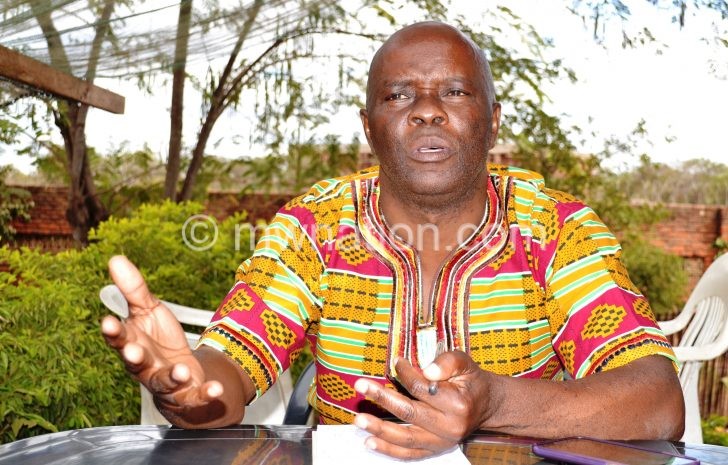Scom celebrates 50 years
 The Students Christian Organisation of Malawi (SCOM) clocked 50 years recently. JAMES CHIMPWEYA talked to Patrick Kaudzu, SCOM general secretary on the work of the organisation over the 50 years and how the youth have shaped society.
The Students Christian Organisation of Malawi (SCOM) clocked 50 years recently. JAMES CHIMPWEYA talked to Patrick Kaudzu, SCOM general secretary on the work of the organisation over the 50 years and how the youth have shaped society.
The youth are believed to be trouble makers in our society. What do you make of this?
In its 50 years of operation, the Student Christian Organisation of Malawi (Scom) has repeatedly observed with great irony and paradox that the architects of the very moral decay and waywardness of today’s youths are the structures and institutions that have been the loudest in bashing the youth. In Scom consistent observation, parents, guardians, churches, teachers and NGOs are key architects of today’s unpalatable youth behaviour. These structures that are supposedly meant to deal with the challenges that today’s youths face have become porous and spongy in mounting a meaningful barricade. At Church level, the amount of resources, messages and time allocated to youths programmes remains negligible. It is fashionable now for churches to measure their progress not on the amount of attention given to youths programmes but on the magnitude of construction projects and paper Sunday proceeds.
Where youth activities are conducted, they are done so sporadically and without the guidance or keen attendance of church leaders. The Church today thus offers no solid platform of solutions to the challenges faced by the youths. At household or family level, the situation is lamenting the same if not worse. A study done by Scom and One Hope found that only 30 percent of parents spend their time with their children discussing reproductive or sexual issues. Homes have thus become mere camping sites for parents and children. Conversely, 70 percent of children get messages about risky sexual behaviours from “other sourcesâ€.
Why do you think the older generation does not listen to the youth and vice versa?
Scom observes that the youth are crying out loud for attention from the adults but it seems the older generation is not listening attentively. Instead, we seem to be busy blaming the youths without really understanding what they are struggling with. There is a conspicuous absence of efforts by the above architects to understand both past and current trends that shaped the worldview and value systems of the generation of adults and the current generation of youth, respectively. Scom argues that all architects should sincerely answer the following questions: On what basis do we define the youth? How well do we know the youth? What are their strugglers, fears, frustrations, ambitions, aspirations, priorities, realities and expectations in life? How do they define life? What is their perception of the future? How do they perceive the older generation? What drives them? How do we approach the youth? How do we design our programmes, sermons, teachings?
How vibrant is the youth to the development of the church and country in particular?
Young people are open to new ideas and are flexible. They are still shaping their worldviews and are window shopping for heroes. They have a high probability to trust someone they consider successful in life. As they grow up, they begin picking up lifestyles which define their status and they may not easily abandon them. Fourth, it is necessary for their preservation from unnecessary troubles later in life. It is an open secret that most of the pain that people face in their adult life is as a result decisions and choices made during their youthful days. Finally, by investing in the youth, we are able to reach tomorrow’s leaders today. If we try to reach the bosses in their offices, we may need to book an appointment from their secretaries. If they discovered that the appointment is meant to preach and lecture to them, they may not grant it.
Why was Scom established?
Admittedly, investing in the youth is not an easy and popular task. Scom’s 50-year period of operation has, however, shown that any effort towards youth development can never escape God’s faithful hand. Established by the church to provide guidance in the spiritual, character and leadership development of students in post-primary academic institutions in Malawi to prepare them for life as good members of the church and responsible citizens of society. Scom’s strength over the years has rested on its inter-denominational composition as well as its well-coordinated myriad and self-sustaining structures.development.



